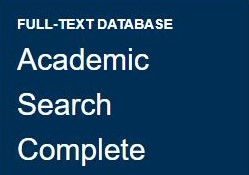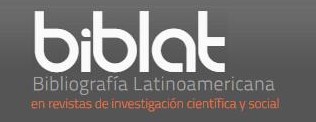Inteligencia Artificial y Turismo 5.0: Innovación, sostenibilidad y transformación digital en el desarrollo de productos turísticos en Cuba
Palabras clave:
inteligencia artificial, turismo 5.0, innovación tecnológica, transformación digital, productos turísticosResumen
El presente artículo examina el papel de la inteligencia artificial (IA) en el desarrollo de productos turísticos en Cuba, identificando sus principales aplicaciones, desafíos y perspectivas dentro del contexto de la transformación digital global. A través de un estudio descriptivo y analítico sustentado en revisión documental y análisis comparado, se evalúa la integración de la IA en la gestión hotelera, el marketing turístico y la personalización de experiencias. Los resultados evidencian que el uso de tecnologías como chatbots, análisis predictivo y sistemas de recomendación permite aumentar la eficiencia operativa hasta en un 35 % y elevar la satisfacción del cliente en un 27 %, según datos de la OMT (2024) y Statista (2025). Asimismo, se proponen lineamientos para su implementación en destinos turísticos cubanos, destacando su viabilidad económica y relevancia estratégica para la innovación sostenible.
Citas
Amadeus. (2024). The Future of Artificial Intelligence in Travel and Hospitality. Amadeus Insights Report. https://amadeus.com/documents/resources/case-studies/travel-trends-2024/travel-trends-2024-report-en.pdf
Bernal Rodríguez, J., Dueñas Reyes, E., Clapés Rodríguez, Y., & Artiles Acosta, R. (2023). Cálculo del recurso humano en una instalación hotelera. Retos Turísticos, 22(1), e-5168. Recuperado a partir de https://retosturisticos.umcc.cu/index.php/retosturisticos/article/view/44
Buhalis, D., and Leung, R. (2018). Smart hospitality—Interconnectivity and interoperability towards an ecosystem. International Journal of Hospitality Management, 71, 41–50. https://doi.org/10.1016/j.ijhm.2017.11.011
Castillo-Manzano, J. I., López-Valpuesta, L., and Pedregal, D. J. (2022). Artificial intelligence and predictive tourism demand: A global approach. Tourism Management, 90.
Choi, Y., Choi, M., Oh, M., and Kim, S. (2020). Service robots in hotels: Understanding the service quality perceptions of human-robot interaction. Journal of Hospitality Marketing and Management, 29(6), 613–635. https://doi.org/10.1080/19368623.2020.1703871
Chung, N., Han, H., and Joun, Y. (2020). Tourists’ intention to use chatbot services: Role of perceived usefulness and attitude. Computers in Human Behavior, 118, 106731.
Del Vecchio, P., Mele, G., Ndou, V., and Secundo, G. (2018). Creating value from Social Big Data: Implications for Smart Tourism Destinations. Information Processing and Management, 58(2), 102366.
Díaz Rocca, Luz Helena and Zielinski, Seweryn (2022). Community-based tourism, social capital, and governance of post-conflict rural tourism destinations: the case of Minca, Sierra Nevada de Santa Marta, Colombia. Tourism Management Perspectives, 43, 100985, 2022. https://doi.org/10.1016/j.tmp.2022.100985
Erbello Sánchez, D., Tito Corrioso, O., y Calzadilla Guerra, L. (2025). El Turismo como factor de desarrollo y su efecto multiplicador en la economía cubana. Retos Turísticos, 24(1): e-6020, enero-diciembre, 2025. https://retosturisticos.umcc.cu/index.php/retosturisticos/article/view/150
Gartner. (2025). AI Trends in Travel, Tourism and Hospitality Industry 2025. Gartner Research. https://www.gartner.com/en/newsroom/press-releases
Gretzel, U., and Sigala, M. (2022). Intelligent systems in tourism: A critical review. Annals of Tourism Research, 92, 103347.
Gursoy, D., Chi, O. H., Lu, L., and Nunkoo, R. (2019). Consumers acceptance of artificially intelligent (AI) device use in service delivery. International Journal of Information Management, 49, 157–169. https://doi.org/10.1016/j.ijinfomgt.2019.03.008
Han, H., and Jung, H. (2023). Exploring sustainable applications of Artificial Intelligence in tourism destinations. Journal of Sustainable Tourism, 31(5), 801–819.
Ivanov, S., and Webster, C. (2020). Robots in tourism: a research agenda for tourism economics. Tourism Economics. https://doi.org/10.1177/1354816619879583
Li, S., Wang, Y., Filieri, R., and Zhu, Y. (2022). Eliciting positive emotion through strategic responses to COVID-19 crisis: Evidence from the tourism sector. Tourism Management, 90, 104485. https://doi.org/10.1016/j.tourman.2021.104485
Ministerio de Turismo de Cuba (MINTUR) (2025). Estrategia Nacional de Digitalización Turística 2024–2030. La Habana: MINTUR.
Muñíz Sanamé, R., Montes de Oca Mesa, N., Lugones Fernández, G. y Marrero Marrero, M. (2025). Análisis de la producción científica sobre la inteligencia artificial en el sector turístico. Retos Turísticos, Vol. 24, No. 1: e-6447, enero-diciembre, 2025. https://retosturisticos.umcc.cu/index.php/retosturisticos/article/view/142
Nguyen, T. D., Mondal, S. R., Nguyen, T. T. V., Pham, T. D., Doan, X. H. M., and Das, S. (2020). A study on the role of Web 4.0 and 5.0 in the sustainable tourism ecosystem of Ho Chi Minh City, Vietnam. Sustainability, 12(17), 7140. https://doi.org/10.3390/su12177140
Nguyen, T. T. T., Vrana, V., Nguyen, T. D., Doan, X. H. M., Pham, T. D., Mondal, S. R., and Das, S. (2020). The role of human–machine interactive devices for post-COVID-19 innovative sustainable tourism in Ho Chi Minh City, Vietnam. Sustainability, 12(22), 9523. https://doi.org/10.3390/su12229523
Organisation for Economic Co-operation and Development (OECD) (2025). Digital Transformation and Artificial Intelligence in Tourism. Paris: OECD Publishing. https://www.oecd.org/en/publications
Organización Mundial del Turismo (OMT) (2024). Informe Mundial sobre Innovación y Tecnología Turística 2024. Madrid: Organización Mundial del Turismo. https://www.unwto.org/innovation
Pencarelli, T. (2020). The digital revolution in the travel and tourism industry. Information Technology and Tourism, 22(3), 455–476. https://doi.org/10.1007/s40558-019-00160-3
Pillai, S., and Sivathanu, B. (2023). Artificial Intelligence and Tourism 5.0: The next frontier for sustainable destinations. Tourism Economics, 29(7), 1815–1832.
Statista. (2025). Artificial Intelligence Adoption in the Global Tourism Industry 2025. Hamburg: Statista Research Department. https://www.statista.com/
Tito-Corrioso, O.; Borges-Quintana, M.; Borges-Trenard, M. A. (2023). Improving search of solutions of MRHS systems using the Genetic Algorithm. Revista Cubana de Ciencias Informáticas, 17(1):38–52, 2023. https://rcci.uci.cu/?journal=rcci&page=article&op=view&path%5B%5D=2580&path%5B%5D=1083
Tito-Corrioso, O.; Borges-Trenard, M. A.; Borges-Quintana, M. (2019). Sobre la partición del espacio de las claves. Publicado en el libro Ciencia e Innovación Tecnológica, Vol. 8, pp. 401-409, 2019, ISBN: 978-959-7225-56-0. Editorial Académica Universitaria & Opuntia Brava. http://edacunob.ult.edu.cu/xmlui/handle/123456789/113
Tito-Corrioso, O.; Borges-Trenard, M. A.; Borges-Quintana, M.; Rojas, O.; Sosa-Gómez, G. (2021). Study of Parameters in the Genetic Algorithm for the Attack on Block Ciphers. Symmetry 2021, 13, 806. https://doi.org/10.3390/sym13050806
World Economic Forum (WEF). (2024). Future Readiness of Travel and Tourism: Artificial Intelligence and Digital Ecosystems. Geneva: WEF. https://www.weforum.org/
World Travel and Tourism Council (WTTC) (2024). Economic Impact Report 2024: Global Trends in Travel and Tourism. London: World Travel and Tourism Council. https://wttc.org/
Xiang, Z., Du, Q., Ma, Y., and Fan, W. (2021). A comparative analysis of deep learning in tourism demand forecasting. Journal of Destination Marketing and Management, 20, 100595.
Zeng, B., and Goh, E. (2020). From tourism 4.0 to tourism 5.0: Implications of big data and AI for future tourism. Tourism Management Perspectives, 35, 100726.
Descargas
Publicado
Cómo citar
Número
Sección
Licencia

Esta obra está bajo una licencia internacional Creative Commons Atribución-NoComercial-SinDerivadas 4.0.












